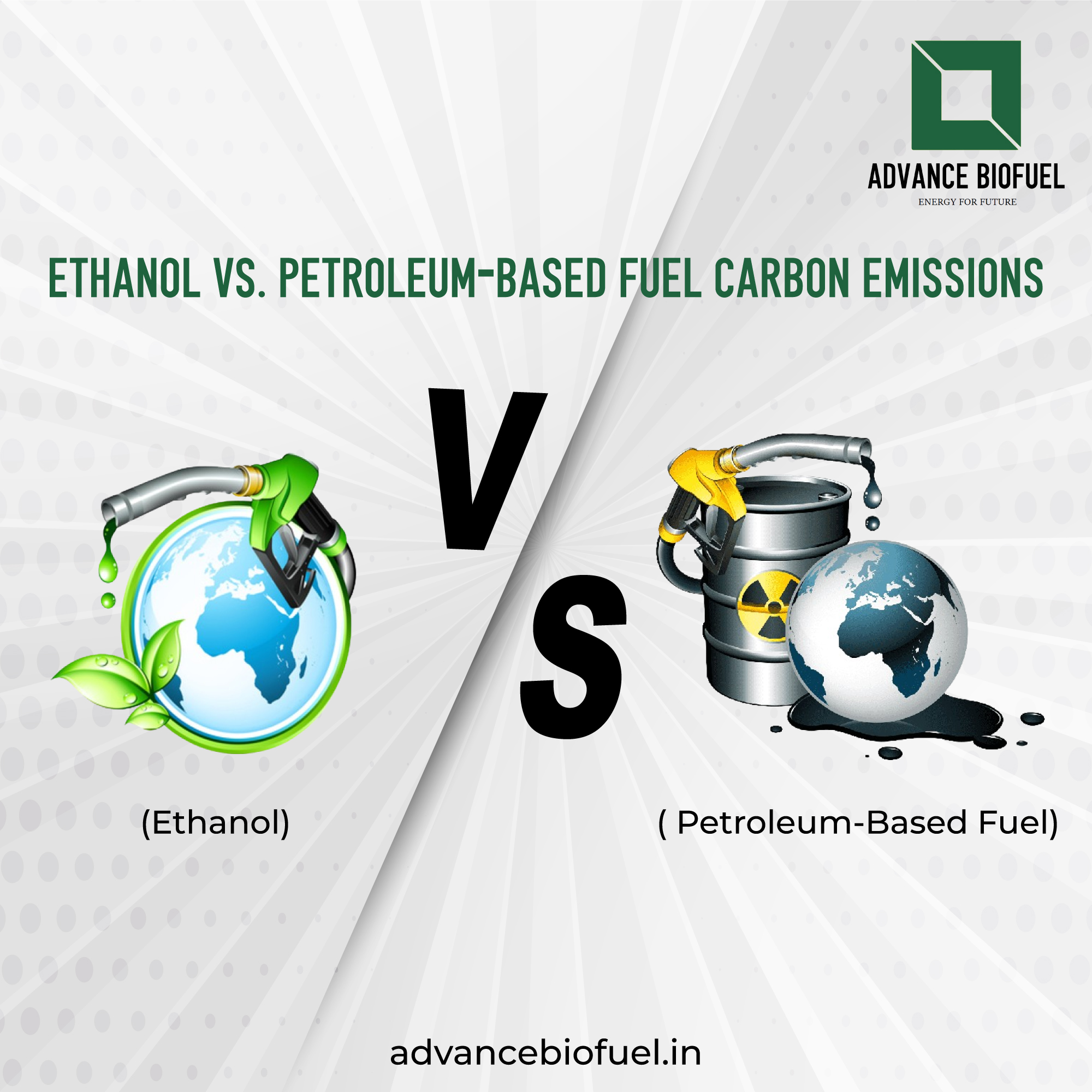The two most common fuels utilized in the transportation industry are ethanol and petroleum-based gasoline. Ethanol, a renewable biofuel, is produced from maize, sugarcane, and other plant components. Petroleum fuels, including gasoline and diesel, are derived from crude oil, a renewable fossil fuel.
Both fuels are crucial for powering automobiles across the world, but they have differing environmental implications, particularly in terms of carbon emissions. This article compares the carbon emissions of ethanol and petroleum-based fuels, emphasizing their relative roles in contributing to or preventing climate change.
Understanding these distinctions enables us to more accurately assess the potential advantages of moving to more sustainable fuel sources.
Environmental Impacts of Transportation Fuels:
Transportation of gasoline has a significant impact on greenhouse gas emissions and climate change. When this fuel is consumed, it emits substantial volumes of carbon dioxide (CO2), the primary greenhouse gas produced by automobiles. CO2 is a major problem because it retains heat in the Earth’s atmosphere, leading to global warming and climate change.
The transportation industry is a major source of CO2 emissions, accounting for about 25% of worldwide energy-related CO2 emissions. This is largely because petroleum-based fuels, such as gasoline and diesel, emit stored carbon when burnt. As the number of automobiles on the road rises, so does the quantity of CO2 generated, worsening greenhouse gasses and hastening climate change.
Aside from CO2, the burning of transportation fuels emits additional pollutants such as nitrogen oxides (NOx) and particulate matter, which degrade air quality and are hazardous to human health. Exploring alternatives such as ethanol, which typically has a reduced carbon footprint, might be a crucial step in decreasing overall greenhouse gas emissions from the transportation industry.
Carbon Emissions from Ethanol Production:
Ethanol production has three stages:
Stage: 1
feedstock, manufacture, and transportation. Initially, maize, sugar cane, and other crops are planted and harvested. This category includes the use of fertilizers, insecticides, and agricultural machinery, all of which produce CO2. However, these emissions are somewhat compensated by the CO2 that these plants absorb as they develop.
Stage: 2
The harvested food is subsequently transported to processing facilities, resulting in CO2 emissions from the gasoline used by transport vehicles. In the process, the feedstock is fermented and distilled to produce ethanol. This process takes a lot of energy and often relies on fossil fuels, thus releasing excess CO2. Furthermore, the fermentation process itself gives off CO2 as a by-product.
Stage: 3
Ethanol produced is ultimately transported to distribution centers and fueling stations, increasing carbon emissions through the disposal of vehicles. Despite these emissions, ethanol generally has a lower total carbon footprint compared to petroleum-based fuels, due to the renewability of the feedstock and its potential for carbon evolution when because they are farming
Carbon Emissions from Petroleum Production and Refining:
The manufacturing and refining of petroleum involve numerous levels:
extraction, transportation, and refining. Initially, crude oil is extracted from underground or underwater reserves through drilling, which calls for full-size strength and emits huge quantities of carbon dioxide (CO2). Additionally, the flaring of natural fuel throughout extraction in addition contributes to CO2 emissions.
Once extracted, crude oil is transported to refineries, often over lengthy distances through pipelines, tanker ships, or vans, all of which eat fossil fuels and bring CO2 emissions.
At the refining level, crude oil is processed into numerous fuels, together with gas and diesel, through electricity-in-depth procedures that require heat and hydrogen, usually derived from herbal gasoline. This stage is certainly one of the largest assets of CO2 emissions inside the petroleum gas lifecycle.
Finally, the delicate fuels are allotted to end customers, including to the overall carbon footprint through emissions from motors. The complete lifecycle of petroleum fuels is heavily carbon-intensive, contributing extensively to greenhouse gasoline emissions and weather trade.
Comparison of Carbon Emissions from Ethanol and Petroleum-based Fuels
When comparing the life cycles of ethanol with petroleum-based fuels, there are significant differences in carbon emissions. Ethanol often has a lower carbon impact due to the renewable nature of its feedstocks. For example, corn-based total ethanol can cut greenhouse gas emissions by 20-30% when compared to gasoline, but better biofuels such as cellulosic ethanol can achieve savings of up to 90%.
In contrast, the lifecycle of petroleum-primarily based fuels is heavily carbon-extensive. Extraction, refining, and distribution methods make contributions notably to CO2 emissions, along with the combustion of the gas itself. The overall emissions for petroleum fuels usually vary from one hundred ninety to 250 grams of CO2 equal to consistent with megajoule (g CO2e/MJ), whereas ethanol emissions vary from a hundred and five to a hundred and fifty g CO2e/MJ.
Including a graph can visually highlight these variations, demonstrating the capacity environmental advantages of transitioning to ethanol-primarily based fuels and their position in decreasing the transportation sector’s carbon footprint.
Conclusion
In the end, ethanol appreciably reduces the carbon footprint compared to petroleum-based fuels, making it an extra environmentally pleasant option. Utilizing ethanol as a transportation gasoline gives several blessings, along with reduced greenhouse gasoline emissions, improved energy security, and assistance for rural areas. By selecting ethanol-based fuels, we can together contribute to a purifier and a greater sustainable destiny. We encourage you to learn more about ethanol’s benefits and bear in mind switching to ethanol-based totally fuels. For more information, go to Advance Biofuel, your trusted supply for sustainable strength answers.


